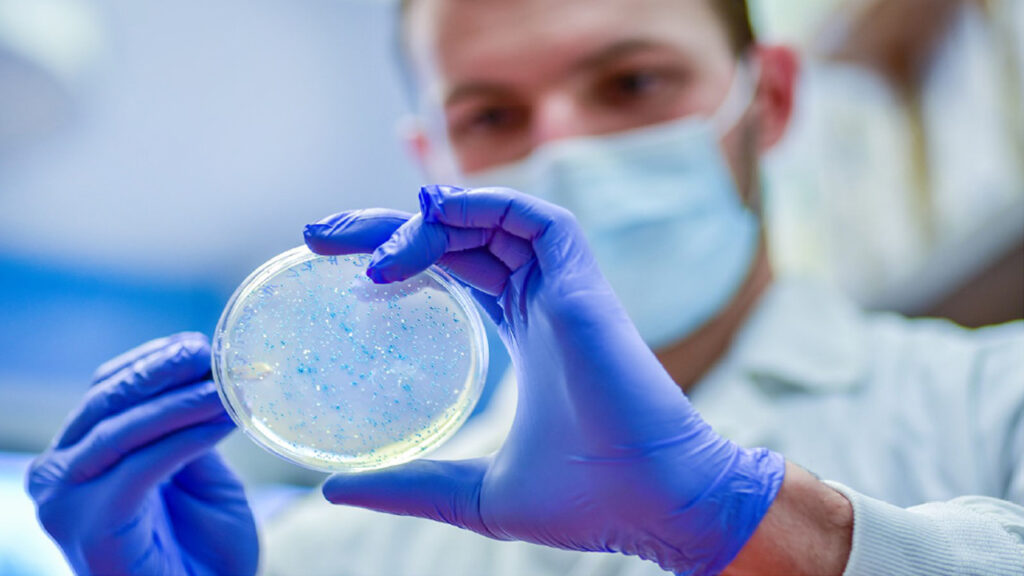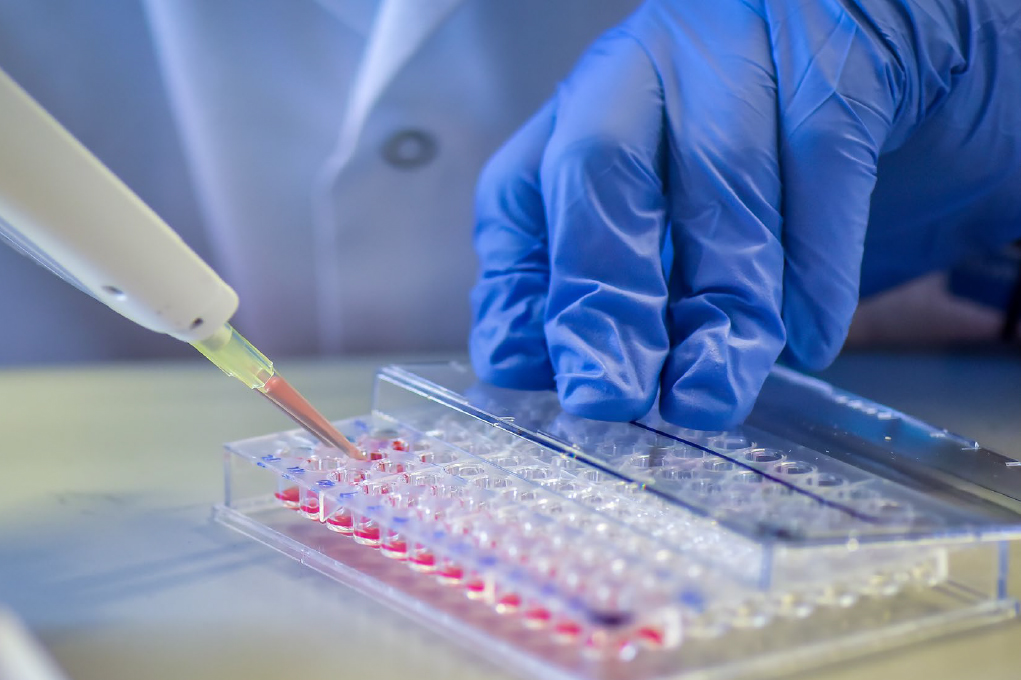
On November 2nd 2023, the JDRF Centre of Excellence at UBC held its second annual meeting to review research progress, celebrate advances, brainstorm challenges, map out next steps, and exchange knowledge about the lived experience of T1D – all with a view to accelerate the path towards a cure for T1D via the Centre’s research program.
Year 2 at the JDRF Centre of Excellence at UBC has seen progress across all areas of the T1D research program, as well as expansion of its training program and establishment of a T1D Lived Experience Advisory Group.
“It was wonderful to come together and celebrate another strong year of progress on all three JDRF Centre of Excellence theme areas,” said Jim Johnson, Professor, Cellular & Physiological Sciences and Surgery, University of British Columbia. “I am continually inspired by the dedication and brilliance of our students and fellows who continue to drive breakthroughs. We are all, in turn, inspired by our partners with lived experience and thank them for their participation.”
Below are a few highlights shared at the annual event:
Theme 1: Building better beta cells for islet replacement therapy, led by Dr. Francis Lynn
The team has developed new tools that enable testing specific genes for their impact on beta cell function and survival. Using these tests, they now aim to identify genes that make stem cell derived beta cells stronger and better insulin producing cells eligible for transplantation purposes. The team is also gaining new insight into the importance of including stem cell-derived alpha cells in islet replacement products along with stem cell-derived beta cells. In healthy islets, alpha cells release the hormone glucagon, which helps to product individuals from experiencing hypoglycemia.
Theme 2: Protecting insulin-producing beta cells from immune attack, led by Dr. Megan Levings
Over the last year the team has made substantial advances in developing new, immunomodulatory products for prevention and treatment of T1D. One candidate product is being explored for patent protection. The other, a lipid nanoparticle (LNP)-based approach being studied in partnership with UBC spin-off Integrated Nanotherapeutics, found that treatment of animals prone to T1D stopped the majority of animals from developing the disease. Next, the team will test this therapy in animals with pre-existing T1D for its potential to reverse disease.
Theme 3: Targeting and monitoring beta cell stress, led by Dr. Jim Johnson
The team is expanding our understanding of EIF2A, a protein that protects beta cells from dying. Using an artificial intelligence-based approach, the team has mapped the interactions between EIF2A and other proteins to identify protein combinations that may further increase the protection of beta cells. The team also discovered that an enzyme called PC1/3 involved in processing insulin inside beta cells appears to be defective in people with T1D. This discovery increases our understanding of beta cell dysfunction in T1D and increases the chance that we can identify new indicators of beta cell health, which potentially can be used to monitor individual responses to T1D treatments.
Clinical trials

Dr. Meiying Zhuang, Transplant Endocrinology Fellow at UBC affiliated with the Centre’s clinical core presented the latest data and future plans for islet replacement trials taking place in Vancouver. As the Centre’s work progresses, the Clinical Core will help to facilitate translation of discovery research being carried out in Themes 1-3 to clinical testing. Dr. Zhuang’s perspectives on the translation of research from bench to bedside reinforced the importance of the Centre’s unique opportunity for collaboration and prompted interesting discussions amongst attendees.
Seed grants
The Centre also celebrated the success of the seed grant competition with updates from the first grantees and an announcement of Year 2’s funded projects. Seed grants provide funding for pilot studies aimed at developing novel ideas aligned with the Centre’s goals, and are designed to expand the scope of the Centre’s research program and bring new investigators into the collaborative research team
Dr. Hongshen Ma (Professor, Mechanical Engineering, UBC) used their 2022 seed grant funding to collaborate with Theme 1 in order to engineer a new system for measuring beta cell function and insulin production at the single-cell level. This new tool allows the teams to more accurately study and compare the function of stem cellderived beta cells to donor islets, providing insights to the Theme 1 team as they develop improved products for islet replacement therapy. The other 2022 seed grant awardee, Dr. Dan Luciani (Professor, BC Children’s Hospital Research Institute, UBC) is using their funding to explore the potential of a protein called TFEB to protect from T1D in an animal model.
Dr. Jan Dutz and team were awarded a 2023 seed grant to test whether a modified version of methotrextate – a drug that has long been used for treatment of other immune diseases – may hold promise in T1D. The second 2023 seed grant was awarded to Dr. Marc Horwitz and team to investigate how the complex relationship between viruses and the gut microbiome can influence susceptibility to T1D, potentially shedding light on new avenues to T1D prevention or treatment.
Lived Experience Advisory Group
In 2023, the Centre established the T1D Lived Experience Advisory Group consisting of people with lived experiences of T1D from outside of the research teams. The Advisory Group will integrate the voices of people with lived experience of T1D into the Centre to ensure their interests and concerns are heard and translated into research aims and knowledge mobilization activities.
The Advisory Group and the Centre’s trainee committee co-organized a Knowledge Exchange Workshop during the annual meeting, which was a highlight from last year and equally impactful in year 2. Investigators and trainees from the Centre met with people with lived experience of T1D to share perspectives on what it means to live with T1D, what a cure would mean, and how researchers and the T1D community can better work together to accelerate research.
“Sharing my T1D experiences at the roundtable today was meaningful to me” said Doug Bourne, a member of the Centre’s T1D Lived Experience Advisory Group. “I sincerely pass along my gratitude to all those whose efforts, research and contributions help to make life better, easier and more manageable for people with diabetes. Without this work our lives would be much different.”
Developing the next generation of T1D researchers
The JDRF Centre of Excellence at UBC team includes several outstanding trainees, including undergraduate students, graduate students, and postdoctoral fellows. The collaborative nature of the Centre offers trainees an ideal environment to develop as researchers, communicators, and team members ready to become the next generation of experts.
A Trainee Committee was created in year 2 to organize events and develop workshops relevant to Centre trainees. During year 2, trainees participated in multiple workshops and many travelled to Michigan, USA, for an event involving all international JDRF Centre of Excellence trainees in May, 2023. During the second annual meeting in Vancouver, the trainee committee’s accomplishments were celebrated and capped off with a Graphical Abstract Competition. During this session, 10 trainees from Centre labs presented a 3-minute summary of their research to a lay audience with only a single slide for support, in a competition judged by people with lived experience of T1D, as well as researchers and JDRF staff in attendance.
During the annual meeting, the Centre also took the opportunity to celebrate and welcome the new J. Andrew McKee Postdoctoral Fellow, funded by JDRF and Canada’s Stem Cell Network: Dr. Sing-Young Chen. Learn more about Dr. Chen on our blog.
Looking ahead
As the Centre’s research program advances, the team is focused on continuing to expand multidisciplinary training opportunities for trainees, incorporating innovative new approaches and projects, and mapping out the path to clinical translation or commercialization for the different therapies and technologies being studied. In Year 3, the Centre’s clinical core will become more active, and engagement with the Type 1 Diabetes Lived Experience Advisory Group will guide evolution of the research program and external communications about the Centre’s progress.
“It was fantastic to share news of progress at this second annual meeting: discoveries made, milestones met, results published, trainees excelling, new collaborations forged,” said Sarah Linklater, Chief Scientific Officer at JDRF Canada. “But what is most exciting is the community that is growing around this initiative, and how this cutting-edge research is increasingly connecting with and being guided by the lived experience of T1D. This is the way forward.”
Future plans for the Centre are focused on the overall goal of bringing new cure therapies to the clinical testing stage. Read more about the Centre here or at UBC’s new dedicated webpage at jdrf.med.ubc.ca
To learn more about supporting the Centre of Excellence, please visit: https://jdrf.ca/get-involved/accelerate/




